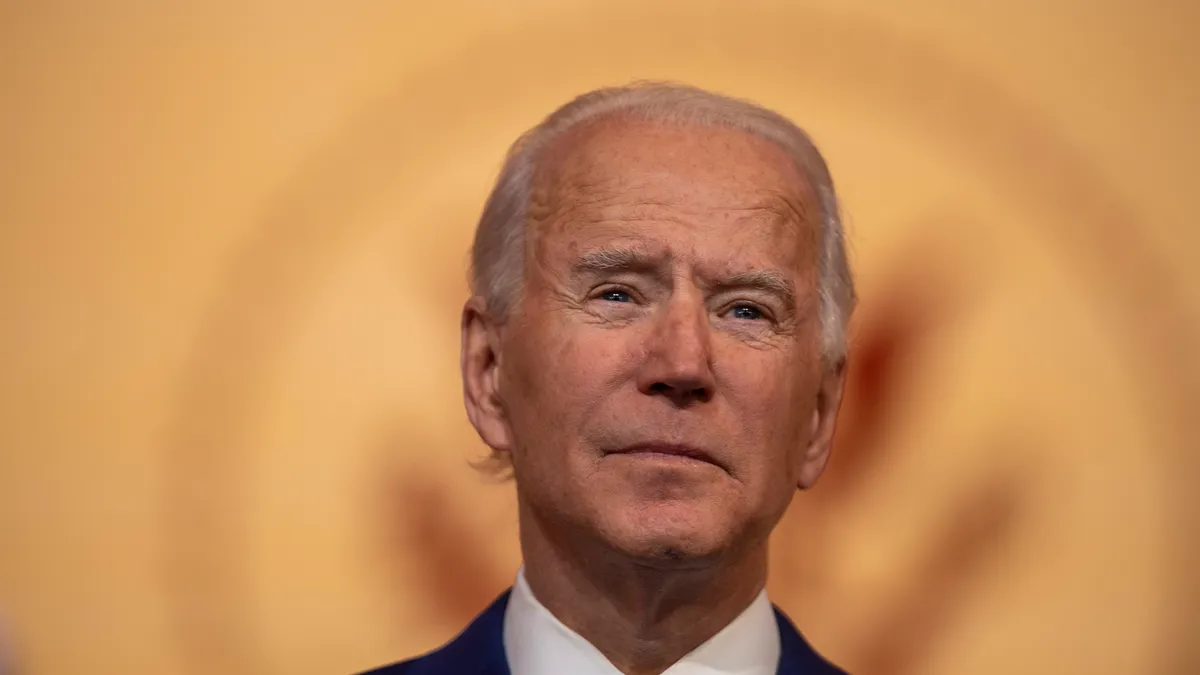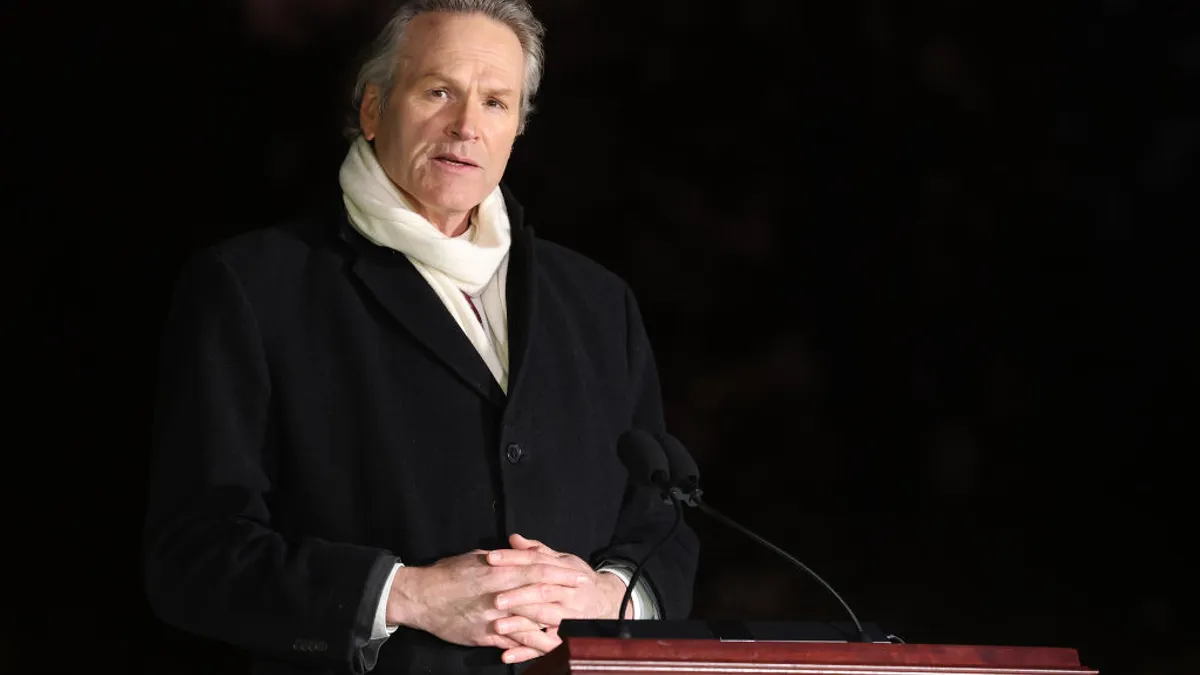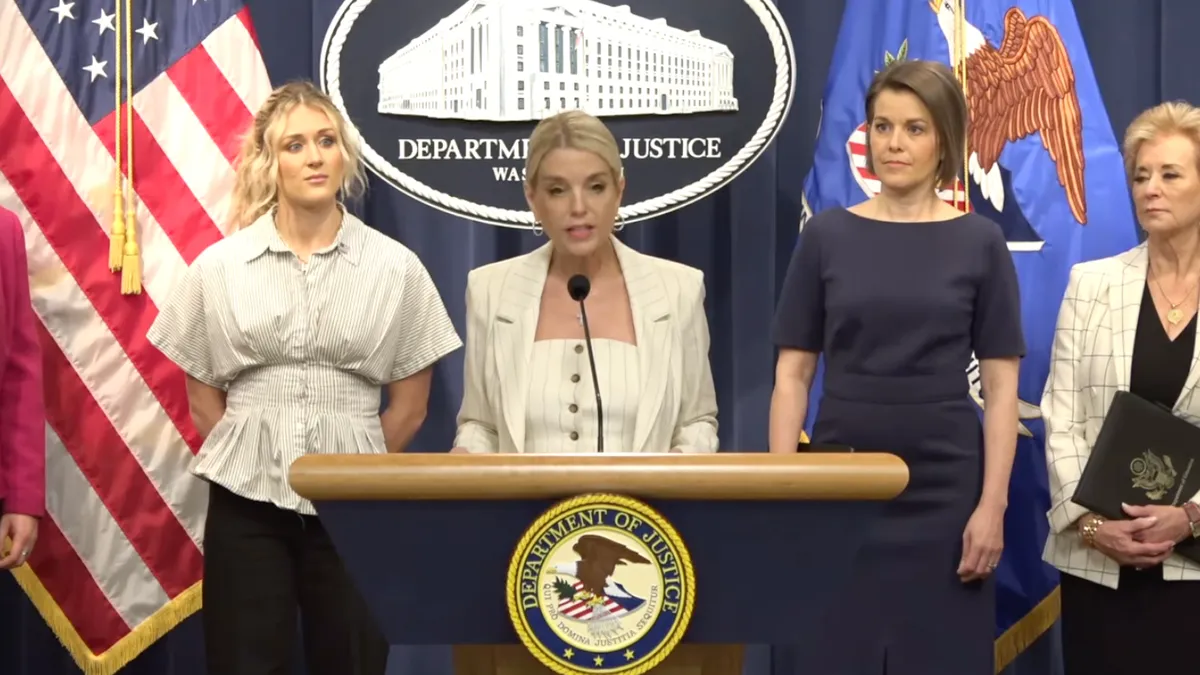The two-month window for the public to submit feedback on the U.S. Department of Education’s Title IX regulatory proposal just wrapped up — and education organizations, civil liberties supporters and more have a lot to say.
Title IX is the law that bans sex-based discrimination, and by extension, acts of sexual violence, in federally funded K-12 schools and colleges. The draft rule governing it, which the Education Department introduced in June, would dictate how institutions must investigate and potentially punish sexual misconduct.
The issue is a hot-button one, reflected in the whopping 200,000-plus comments the department received before the public comment period ended Monday.
Education Secretary Miguel Cardona’s draft rule would undo the current mandate that colleges host live hearings to determine the veracity of a report of sexual violence. Instead, institutions could pick whether they wanted to hold a hearing or pursue another route to investigate, such as one official conducting interviews, looking into the facts of a case and then rendering a decision. This method is known as the single-investigator model, and civil rights groups and Title IX practitioners have panned it.
The proposal would also give colleges flexibility to pick a standard of evidence to determine a case, offer LGBTQ and pregnant students new protections under Title IX, and expand the definition of sexual harassment.
Below, we’ve summarized the public response to the draft Title IX rule and some next steps in regulatory procedures.
How many comments did the Education Department receive?
The public comment period ended Monday after Cardona issued the proposal June 23.
As of Wednesday morning, the Education Department received more than 200,000 comments, but the exact number changes depending on where you look. The Federal Register, the government’s regulatory journal, records more than 210,000 comments, while Regulations.gov shows more than 240,000.
The Education Department did not respond to a request for comment Wednesday on the discrepancy.
Earlier this month, the Federal Register reflected that the Education Department had drawn more than 349,000 comments on the Title IX plan, a massive uptick from days prior, when the count was about 146,000. That 349,000 number was reported by Politico.
However, an Education Department spokesperson told Higher Ed Dive last week this was a “clerical error,” and it was shortly corrected.
Regardless, the current figures are significantly more than the 120,000-plus comments the rule that’s in effect now received during the regulatory process a few years ago. Former Education Secretary Betsy Devos proffered the current regulation, which was widely criticized in public comments, but largely went unchanged.
Does it matter how many comments the Education Department gets?
It does — the Education Department must address all of these comments in some form. That doesn’t mean it has to respond to each one individually, but the final regulation should touch on concerns the public raised.
Policy experts partially attribute a delay in implementing DeVos’ rule to the rash of comments it received. The DeVos Education Department put out a draft rule in November 2018, but it didn’t publish the final version until May 2020. It didn’t take effect until August 2020.
What do other supporters have to say about it?
Nineteen Democratic senators applauded the plan, saying it restored schools’ obligations to investigate sexual violence. The current regulation weakened those requirements, they wrote.
And they wrote they appreciated that the proposal would broaden the cases colleges would need to look into, including many of those off campus.
How did critics weigh in?
Nearly three dozen Republican lawmakers told the Education Department they believe the Title IX proposal is inconsistent with current law, largely homing in on how the plan would cement LGBTQ protections. Under the proposal, attacks on students’ gender identity and sexual orientation would constitute discrimination under Title IX.
“Sex is not one’s self-asserted belief about himself or herself based on emotions, preference, self-presentation or behavior,” the lawmakers wrote. “Sex is binary.”
They also accused the draft regulation of lacking “abortion neutrality language.” The lawmakers agree students shouldn’t be discriminated against because of a pregnancy. Still, they wrote they’re concerned about the language barring discrimination based on termination of a pregnancy — “essentially equating abortion to pregnancy and childbearing.”
Meanwhile, civil liberties and men’s rights groups have railed against many aspects of the Title IX plan. In one filing, one such group, Stop Abusive and Violent Environments, or SAVE, referenced court cases that criticized campus proceedings. SAVE said this showed how investigations historically lacked impartiality.
The New Civil Liberties Alliance commented that the plan infringed on due process, a common complaint among the proposal’s detractors.
“In the context of Title IX, and despite the recent trend of turning inexpert schools and universities into ersatz legal tribunals, any allegations of sexual assault, harassment, or other types of sex discrimination should be dealt with through our civil and criminal justice systems,” it wrote.
Did the Education Department consider taking more public comments?
Republican lawmakers had asked the Education Department to extend the public comment period. In July, 21 GOP senators wrote to Cardona, requesting the timeline be pushed back by at least 30 days “to ensure that the American public has the proper time to review this troublesome attack on due process protections and the expansion of Title IX.”
It didn’t happen.
Catherine Lhamon, who leads the Education Department’s Office for Civil Rights, told reporters at the Education Writers Association annual meeting in July that the deadline likely wouldn’t be extended.
What’s next?
The Education Department will parse through the thousands of comments to prepare for the release of the final regulation. It’s unknown when it will publish the final rule, but it took about a year and a half from when the department first published a regulatory draft for DeVos to issue a final iteration of the current regulation.
In the meantime, the department pledged to undergo separate rulemaking to tackle the issue of transgender student athletes participating in sports aligned with their gender identity. Legal experts have said the department likely did not fold these provisions into the larger Title IX plan to avoid the entire regulation being thrown out in a lawsuit.
The National Women’s Law Center, with about 50 other women’s rights organizations, this month called on the Biden administration to swiftly release that proposal. The groups said it is critical as LGBTQ students face “pervasive discrimination in school, including sexual and verbal harassment, violence, and excessive discipline by faculty.”























